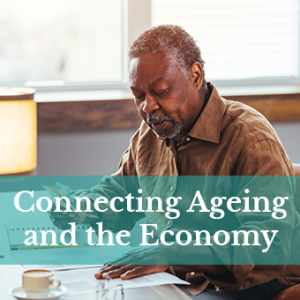
We are working longer! How will changes to the retirement age and threats to pension provision affect the wellbeing of older people?
Presenter(s):
Jolene Skordis; Cherian Mathews; Alison Marshall, Age International, United Kingdom
Abstract
Bio(s):
Jolene Skordis is a Professor of Economics, specialising in health and development. She is Vice-Dean (International and Advancement) for UCL’s Faculty of Population Health Sciences, Head of the Department of Environment and Community Health, Chair of the European Global Health Research Institutes Network, a Senior Research Fellow at the Institute for the Future of Work and a Fellow of the Royal Society for Public Health. She is a regular advisor to the WHO, World Bank and the Global Fund. She works primarily within randomised trials of complex public health interventions, with research programmes spanning fiscal space for sustainable and scalable health service delivery, anti-poverty programmes, gender empowerment, social networks to support behaviour change and the promotion of health equity. Her work has directly influenced government policy in a range of countries.
Alison is CEO of Age International and a member of the Age UK Senior Leadership Team. She leads Age International’s work on the needs and rights of older people across low- and middle-income countries, overseeing governance, advocacy, fundraising, communications, programme funding and humanitarian work.
Alison has over 25 years’ experience in international development. She was previously Managing Director of Sense International, working for and with people with disabilities. Before that she held senior roles at the International Planned Parenthood Federation, UNICEF UK, Bond and CAFOD. Her work on human rights has seen her travel extensively, most recently to visit work with older people in India, Rwanda, Vietnam, Pakistan and Tanzania.
Alison is on the Boards of the Disasters Emergency Committee, INTRAC and the Fairtrade Foundation.
She holds a MSc in NGO Management from Bayes Business School, a LLM in Human Rights from the University of London, and MAs from Sussex University and from Cambridge University where she studied Geography.
Cherian Mathews is Chief Executive of HelpAge International, leading the organisation’s global work to promote the wellbeing, dignity and rights of older people.
Cherian has more than 30 years of international development experience in leading and managing humanitarian, long-term development and campaign work at country, regional and global levels.
Previously, he worked with Oxfam GB as International Programme Director and before that as Asia Regional Director, where he led major humanitarian responses in the Philippines and Nepal and led regional campaigns on economic justice and inequality.
Before joining Oxfam in 2003, Cherian worked with Action Aid. Prior to that he worked with local and national level organisations on the rights of indigenous and other marginalised communities in India.
